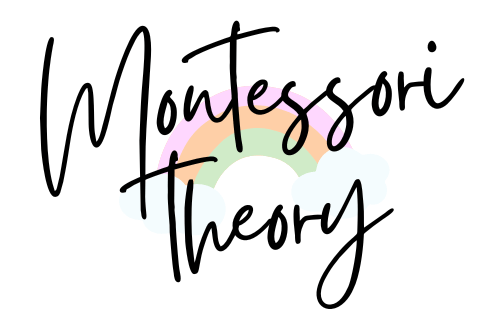The journey of childhood is characterized by a series of sensitive periods, during which children display heightened receptiveness to specific stimuli and learning opportunities. These key windows of time play a crucial role in a child’s development, as they are responsible for shaping numerous aspects of their lives. Parents and educators should acknowledge and support these sensitive periods to ensure optimal growth into well-rounded individuals.
Key Takeaways
- Sensitive periods are times when children are highly receptive to learning specific skills, characterized by intense focus and natural knowledge absorption.
- Brain plasticity during these periods enables efficient learning, with experiences shaping neural pathways.
- Montessori education capitalizes on these periods for child-led learning, enhancing skill development and engagement.
- Key sensitive periods include language acquisition, sensory refinement, order, movement, and social skills.
- Supporting these periods involves creating enriched environments, observing children’s interests, and encouraging exploration and discovery.
What are Sensitive Periods
Sensitive periods in child development are specific time frames during which a child is particularly receptive to certain types of learning and experiences. These periods are characterized by intense focus and the ability to absorb and learn specific skills and knowledge with little effort. The concept of sensitive periods is central to Montessori education and has been extensively studied in the field of developmental psychology.
Psychological Aspects of Sensitive Periods
Brain Development and Plasticity
Brain plasticity, also known as neuroplasticity, is the brain’s ability to reform and adapt its structure and function in response to experiences and new information. This remarkable feature is most pronounced during early childhood, making it an opportune time to capitalize on sensitive periods. This plasticity allows the brain to strengthen and expand new pathways in response to repeated experiences.
For instance, a child learning how to walk repeats the motion of their legs moving one in front of the other. Due to the plasticity in the child’s brains, these connections are then strengthened, and the child learns how to walk. The interconnectedness between sensitive periods and brain plasticity ensures that children acquire critical skills and knowledge with relative ease and efficiency.
Constraints on Plasticity
Despite the brain’s adaptability, there are constraints on plasticity, often described in terms of sensitive or critical periods. These periods allow experience to instruct neural circuits to process or represent information in a way that is adaptive for the individual. When experience provides information that is essential for normal development and alters performance permanently, such sensitive periods are referred to as critical periods.
Neural Circuits and Sensitive Periods
Sensitive periods are actually properties of neural circuits, representing developmental windows of opportunity during which the brain is particularly responsive to specific experiences and inputs. These periods of heightened plasticity are characterized by an interplay of several neurobiological processes, including the balance of inhibitory and excitatory neural input.
Experience during a sensitive period modifies the architecture of a circuit in fundamental ways, causing certain patterns of connectivity to become highly stable. For example, the sensitive period for language development involves complex learning mechanisms that encode specific environmental experiences, shaping the development of sensation and perception as well as affective and cognitive functions.
Montessori’s View on Sensitive Periods
Montessori’s approach to education is heavily influenced by these sensitive periods. The Montessori method is based on “child-led” learning, allowing children to follow their interests and instincts to maximize the power of these sensitive periods. When a child is in a sensitive period, they are engaged, passionate, and energized by working on a specific activity or skill, and often return to it again and again.
If a child isn’t permitted to exercise their sensitive periods, they may demonstrate their unmet needs through tantrums and lose the ease of doing and interest for the activities related to developing that skill. Recognizing and supporting sensitive periods in a child’s development begins with a knowledge of what is typical at different ages and simply observing your child and allowing them to progress at their own pace.
Key Sensitive Periods in Child Development
Language Acquisition
One of the most widely studied sensitive periods is language development, typically occurring between birth and five years of age. During this time, children are primed to absorb the various sounds, words, and grammar rules that constitute their native tongue. By providing ample exposure to speech through conversation and reading, parents and educators can encourage linguistic proficiency in young learners.
Refinement of the Senses
The first few years of life are marked by a rapid refinement of the senses, as children take in sensory input from their environment. This sensitive period is key for developing skills related to vision, hearing, touch, taste, and smell. By introducing carefully selected, stimulating materials that cater to the different senses, caregivers can help heighten children’s perceptual abilities.
Order and Organization
Around the age of two or three, children enter a sensitive period for order and organization. This stage plays a significant role in the development of problem-solving, memory, and attention span. Parents and educators can support this phase by maintaining consistent routines and providing opportunities for independent exploration and discovery.
Walking and Movement
The ability to walk signals the beginning of a new sensitive period focused on balance, coordination, and overall physical agility. It sets the foundation for decidedly more complex feats such as running, climbing, and jumping. Encouraging free movement and active play is essential in nurturing motor skill development during this vital stage.
Social Aspects of Life
As children approach their preschool years, they display heightened sensitivity towards social interaction, making it an opportune time to teach them emotional intelligence and empathy. Engaging in group activities, sharing experiences, and talking about feelings helps foster positive relationships with peers and adults alike.
| Sensitive Period | Age Range | Examples of Activities |
|---|---|---|
| Language | Birth to 6 years | Reading, storytelling, vocabulary games, language materials |
| Practical Life | 2 to 4 years | Pouring, spooning, buttoning, sweeping, food preparation |
| Sensorial Development | 2.5 to 6 years | Exploring different textures, smells, sounds, sensorial materials |
| Movement and Motor Skills | Birth to 6 years | Climbing, balancing, walking, running, outdoor play |
| Math and Numeracy | 4 to 6 years | Number games, counting activities, introduction to math materials |
| Order and Routine | Birth to 6 years | Establishing a consistent daily routine, maintaining order |
Practical Implications
-
Recognizing and Supporting Sensitive Periods
Recognizing and supporting sensitive periods in a child’s development is crucial. These periods can be characterized by mimicking, intense concentration, and compulsive or obsessive behavior. Breaking a child’s routine that they are attempting to understand and master can result in a powerful emotional response such as a tantrum
Therefore, understanding different sensitive periods gives an opportunity and responsibility to parents and educators. During these moments, children are able to absorb information with little effort.
-
Challenges and Solutions
One of the challenges parents may face is identifying their child’s specific sensitive periods. These periods can vary from child to child and may not always be obvious. It may require careful observation and understanding of the child’s behavior and interests to identify which sensitive periods they are currently experiencing. Additionally, parents may struggle with providing the appropriate materials and activities to support their child’s sensitive periods. To overcome these challenges, parents and educators can create environments that foster independence, engagement, and a love for learning.
-
Impact on Education and Life Skills
Sensitive periods in child development are important because they represent unique windows of opportunity for children to learn and develop specific skills and abilities. By understanding the timing and nature of these sensitive periods, educators and parents can create an educational environment that is responsive to the needs of each child and that supports their optimal development. For instance, recognizing and nurturing a child’s sensitive period for language can provide appropriate support and materials to help children develop strong language skills and facilitate effective communication throughout their lives
-
Long-term Effects
If the opportunity of the sensitive periods is missed, it can never again be recaptured. However, it is still entirely possible for children to learn each skill outside of a sensitive period, although it will often be more difficult. Therefore, recognizing and supporting a child during their sensitive periods can enhance their learning and development, fostering their growth and potential.
Supporting Sensitive Periods: Best Practices for Parents and Educators
Observing and supporting children in their sensitive periods are critical to Montessori education, and educators are trained to encourage behavior that satisfies the child’s desire to learn and grow in a healthy, safe way.
- Be Attentive: Monitor your child’s developmental milestones and interests closely to identify when a sensitive period may be occurring.
- Create an Enriched Environment: Ensure that your home or classroom is filled with stimulating materials, activities, and experiences that cater to the specific skills being acquired during a sensitive period.
- Follow the Child’s Lead: Allow children to choose their own learning tasks according to their interests and passions within the context of the particular sensitive period.
- Patience: Remember that every child’s development is unique. Some may exhibit signs of entering or exiting a sensitive period sooner or later than others.
- Maintain Open Communication: Involve parents in discussions about their child’s progress and share strategies for nurturing sensitive periods at home.
Maximizing the Benefits of Sensitive Periods
Sensitive periods in child development, as elucidated by both psychological research and the Montessori approach, play a pivotal role in shaping a child’s learning and growth. These periods represent unique windows of opportunity during which children are exceptionally receptive to acquiring specific skills and knowledge. By recognizing and nurturing these sensitive periods, parents and educators can provide an environment that supports the child’s natural development and maximizes their potential.



